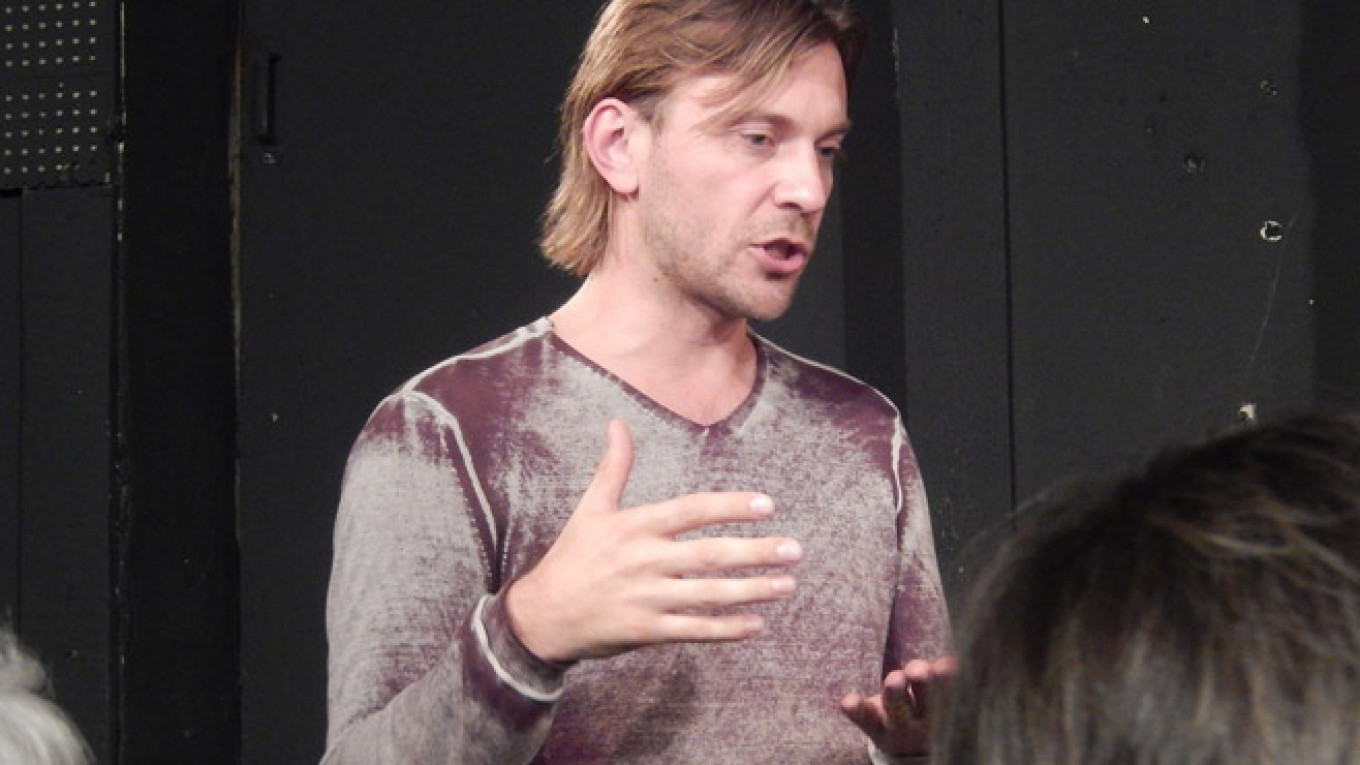Imagine a world in which law enforcement agencies have direct access to the data you store in social media, you are subject to arrest and prison if on social media you repost or retweet anything that the government disapproves of, you are banned from casting doubt on the government's official version of the history of World War II, and no one, but no one, publicly curses about these or any other issues.
Is this an updated version of Aldous Huxley's classic antiutopian novel, "Brave New World"? Not exactly. If you live in Russia, this will be your world by September 1, according to a blog, "A Guide Through Your Life: What the Duma Has Banned in Recent Months," published last week by Vitaly Vasilchenko. This piece, which chronicles 10 laws that have either become law or soon will, grabbed 22,000 views and 2,500 likes on Facebook in the first five days following its publication on Tuesday.
Vasilchenko focuses not just on the media and the arts, but on changes in the political sphere as well. He notes that the citizens of all Russian cities other than Moscow, St. Petersburg and Sevastopol no longer have the right to elect their mayors directly, that you can be sent to prison if you are detained at more than two political rallies, and that if you are blogger who attracts 3,000 readers a day, you must obey all laws governing the mass media.
In other words, as Vasilchenko puts it, "you can call someone names or criticize someone wantonly, but now you'll have to bear responsibility for that."
A new law passed by the Duma, but not yet signed by President Vladimir Putin, would virtually outlaw expressing doubt about the annexation of Crimea by Russia.
Some artists continue to doubt the legitimacy of the new laws going into effect. Poet Lev Rubinshtein on Friday wrote wrote about the dangers and pleasures of resistance on his Facebook wall.
"We have all found ourselves in a situation," he opined, "where almost all manners of creative energy have been transformed by the will of historical circumstance into the energy of resistance. (At first I wrote the word 'resistance' with a capital letter but then changed my mind. I trust you understand why.)."
"Resistance is a joyous and heady affair for people who know well that God is not a chump and history is not a whore," Rubinshtein continued. "We must be joyful and non-judgmental because we know we are right."
Aside from the federal laws discussed in Vasilchenko's blog, members of the Moscow City Duma proposed last week to cease financing experimental theater productions featuring curse words, sex and violence. "If theater directors want to stage experiments including obscenities, the imitation of sexual acts and scenes of violence, let them do so outside of the budget," city council member Lyubov Nikitina was quoted as saying in Izvestia on Friday.
Playwright Mikhail Durnenkov fired back an incredulous response on Facebook on Saturday.
"What do you think of the notion of art as a place where theater directors 'WANT to stage experiments including obscenities, the imitation of sexual acts and scenes of violence'? Durnenkov wrote. "Do these people believe what they say? Do they truly believe there are individuals, different from them, who are ruled by the desire for everything described above, and that these people are theater directors? Then can you imagine what a terrible world must exist inside the heads of these bureaucrats? How horrible it must be on the island of their personal morality amid such monsters and perverts?"
Documentary filmmaker Marina Razbezhkina took on the specific topic of obscenities as well as the recent general attempts to legislate morality in an interview published Friday in Novaya Gazeta.
"These people think, 'If our country is happy and rosy and good on screen, then all this goodness will be replicated in our far-from-happy, rosy and kind world. It's a fallacious equation. First the world enters culture, then culture speaks about an imperfect world. There are different kinds of language in an imperfect world. You cannot ban language legislatively."
A Message from The Moscow Times:
Dear readers,
We are facing unprecedented challenges. Russia's Prosecutor General's Office has designated The Moscow Times as an "undesirable" organization, criminalizing our work and putting our staff at risk of prosecution. This follows our earlier unjust labeling as a "foreign agent."
These actions are direct attempts to silence independent journalism in Russia. The authorities claim our work "discredits the decisions of the Russian leadership." We see things differently: we strive to provide accurate, unbiased reporting on Russia.
We, the journalists of The Moscow Times, refuse to be silenced. But to continue our work, we need your help.
Your support, no matter how small, makes a world of difference. If you can, please support us monthly starting from just $2. It's quick to set up, and every contribution makes a significant impact.
By supporting The Moscow Times, you're defending open, independent journalism in the face of repression. Thank you for standing with us.
Remind me later.







